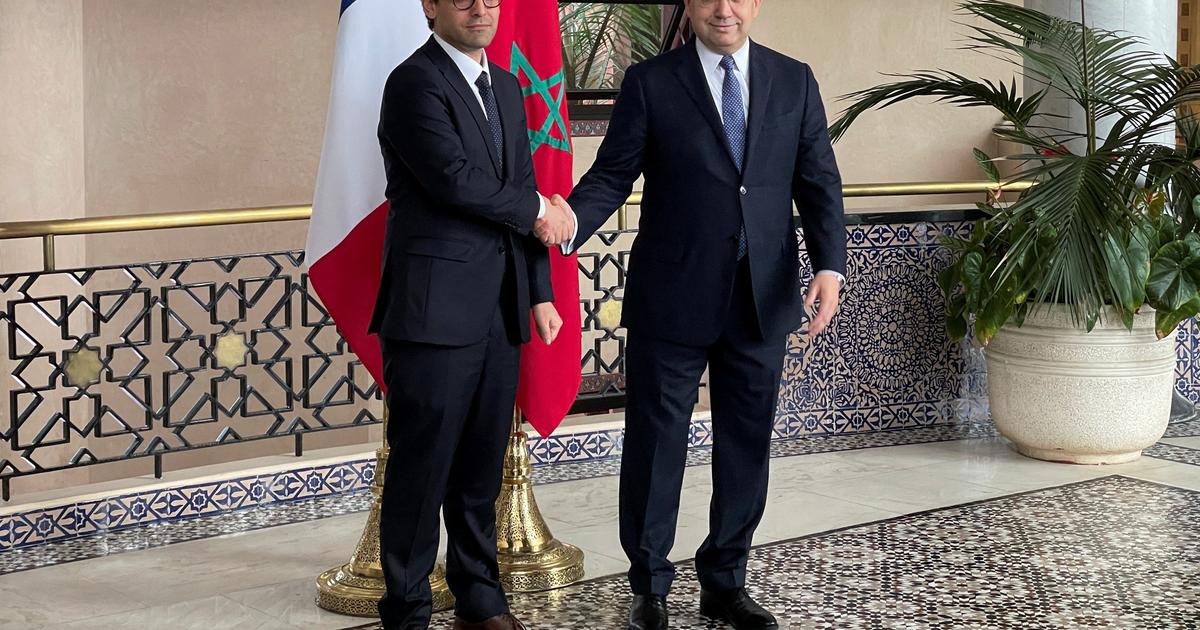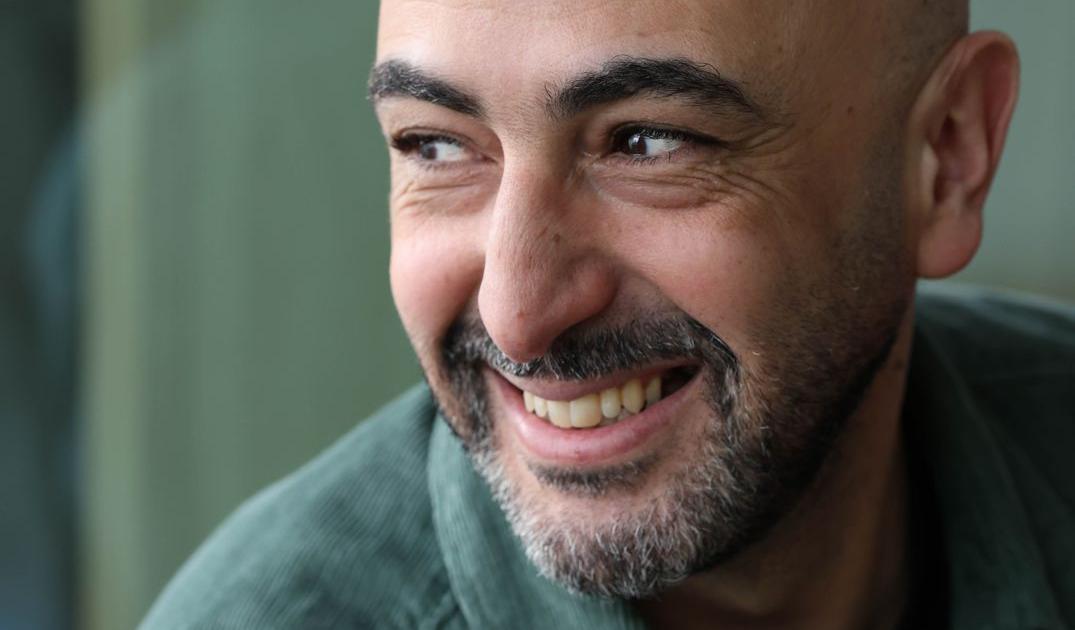The Government's attempt to close the diplomatic crisis with Morocco has opened another with Algeria and has placed the Executive before a political storm in Spain, where everyone has left only the PSOE, its government partners, its parliamentary allies and the main party of the opposition.
The Algerian reaction to the sudden turn of the historic Spanish position on Western Sahara has been sudden: the call for consultations of its ambassador in Madrid, Said Moussi, which in practice means the temporary withdrawal of its diplomatic representation.
The Spanish acceptance of the Moroccan formula to grant only autonomy to the former colony, disregarding the self-determination referendum that the Polisario Front has been demanding for 47 years, under the protection of Algeria,
The diplomatic conflict comes at the worst time for Spain, with Europe's energy supply threatened by the war in Ukraine and the country in suspense over the economic consequences of Russian aggression.
If Putin's attitude had consolidated a certain truce between the Government and the first opposition party, everything was blown up this Saturday.
The criticisms of the PP were as harsh as those of the left and the nationalists, traditional supporters of the demands of the Saharawi people.
Government sources assure that they informed the Algerian authorities of the agreement with Rabat, hours before the Moroccan Royal House made it public.
The same sources were confident that Algeria's indignant response would not affect the gas supply.
No one can be sure, however, what the final reaction of the government that has been sponsoring the Polisario Front for decades will be.
The surprise move by the Executive - which ensures that it was already expecting Morocco to make the agreement public in the first place - is explained above all as an attempt to guarantee Moroccan collaboration to curb immigration flows to Spain.
This is how it was managed
Just two weeks ago, between March 1 and 3, more than 3,700 immigrants tried to jump the Melilla fence.
In a single night, 2,500 tried and throughout the week, about 900 succeeded.
Such a massive assault on the Melilla border had never been seen.
Many residents of the city recalled the entry of more than 10,000 irregular immigrants into Ceuta between May 17 and 18, 2020.
The difference is that those were young Moroccans, many of them minors, who calmly swam past, while these were Sub-Saharans who climbed the fence with hooks and confronted the agents who tried to prevent it, with a balance of fifty injured among them. security forces and migrants.
But both episodes had something in common: without the complicity of the Moroccan border guard they would not have happened.
The Spanish Minister of Foreign Affairs, José Manuel Albares, called his Moroccan counterpart, Naser Burita, to complain and the situation was redirected.
But the message had been made clear: Rabat was not happy with the state of the discreet negotiations that the two governments had been holding for months and in the final stretch it pressed Spain where it hurt the most to obtain more concessions: the acknowledgment that the Moroccan plan of autonomy for the Sahara is the best possible way out of a conflict that has been going on for 47 years.
The President of the Government, Pedro Sánchez, and Burita himself had met on February 18 in Brussels, on the margins of the summit between the EU and the African Union, in what had been the first personal meeting between leaders of the two countries since the diplomatic crisis broke out.
Sánchez was also seen in Brussels with the leader of the Polisario Front, Brahim Gali, which Morocco did not like.
Just two days earlier, Burita and his German counterpart, Annalena Baerbock, had sealed the reconciliation between the two countries, ending a diplomatic crisis that began in March 2021, two months before the Spanish one.
Madrid was thus left alone as the only European capital whose bridges with the Alaouite kingdom were still broken.
The formula chosen to capture the German-Moroccan agreement was similar to the one that would later be used with Spain: a letter from the German president, Frank-Walter Steinmeier, to King Mohamed VI.
In the letter, made public by the Alaouite Royal House, the German head of state described the Moroccan autonomy plan for Western Sahara, presented in 2007, as a "serious and credible effort" and a "good basis" to resolve the conflict .
The terms were practically traced to the latest UN Security Council resolution, dated October 29, which welcomed "serious and credible efforts to advance the process towards a solution."
The Polisario Front did not like the text, but it was the most recent doctrine of the United Nations.
But it was not enough for Morocco that Spain recognized the autonomy plan as one more option to resolve the conflict, together with the referendum on self-determination, but it wanted Morocco to take sides with this position, as France did years ago.
Sánchez, advised by Albares, decided to give in and, in his letter to the King of Morocco, acknowledges that the autonomy plan was not only a "serious, realistic and credible basis for resolving the dispute", but "the most serious, realistic and credible” of all, thus breaking the neutrality that Spain has maintained for decades.
What did you hope to get in return?
Three main concessions, according to government sources: respect for the "territorial integrity" of Spain, including Ceuta and Melilla;
Morocco's refusal to carry out "unilateral actions", such as the extension of its exclusive economic zone towards Canary waters or the closure without notice of customs with Melilla, already in the summer of 2018;
and “cooperation in the management of migratory flows, in the Atlantic and the Mediterranean”.
In addition to "restoring full normality in the movement of people and goods" between the two countries, which will mean the reopening of the borders of Ceuta and Melilla, closed since the start of the pandemic.
These points appear in the statement that La Moncloa released on Friday, but not in that of the Moroccan Foreign Ministry.
Contrary to the German case,
Government sources maintain that the pact exists and will be reflected in the "road map" for the relaunch and normalization of bilateral relations that must be launched with the visit to Rabat that, before April 2, the start of Ramadan, will Foreign Minister;
which will be followed, still without a date, by another from President Sánchez.
In any case, government sources add, if Morocco did not fulfill its commitments, Spain would not be obliged to fulfill its own.
Although that is a hypothesis that is not considered at this time, they are both satisfied to have regained mutual trust.
Formally, the diplomatic crisis began last May, with the call for consultations of the Moroccan ambassador to Spain, Karima Benyaich, who is expected to return to Madrid in the coming weeks, but its real start occurs on December 10, 2020, when Morocco unilaterally suspends the High Level Meeting (RAN) with the Spanish Government scheduled for Rabat just one week in advance.
That same day, the still president of the United States, Donald Trump, recognizes the Moroccan sovereignty of the Sahara.
Aware that Trump, who has already lost the elections, cannot guarantee the continuity of his support, Rabat begins a race against the clock so that more countries join this position before the new US Administration can back down.
The entry into Spain of the leader of the Polisario Front, Brahim Gali, on April 18, to treat a serious covid condition in a hospital in Logroño, gives Rabat the perfect excuse to accuse Spain of disloyalty.
The Biden Administration froze the recognition of Moroccan sovereignty over the Sahara and has not yet opened a consulate in the former Spanish colony, as Trump promised, in exchange for the normalization of relations between Morocco and Israel.
Last week, Deputy Secretary of State Wendy Sherman said in Rabat that Washington considers the Moroccan autonomy plan for the Sahara "a serious, credible and realistic approach" that could meet the aspirations of the peoples of the region.
That is to say: the same position as Germany, less favorable to Morocco than the new Spanish position.
And very far from the recognition of the Moroccan nature of the Sahara that Trump made.
Sherman met with Albares in Madrid before traveling to Rabat.
In any case, underline diplomatic sources, the ball is still in the court of the United Nations.
The United States, Germany and also Spain support the efforts of the secretary general's special envoy, Staffan de Mistura, who is traveling through the region on a Spanish Air Force plane.
As much as Sánchez's turn has unbalanced the correlation of forces in favor of Morocco, add the same sources, De Mistura is not going to propose any solution proposal that is not accepted by all parties.
The move by Sánchez and Albares is high risk.
It has infuriated Algeria, it has opened a new conflict between the Government's partners and at the same time it has outraged its parliamentary allies and the PP.
The benefit of the agreement for Spain would be to ensure that a crisis such as the one caused by the occupation of the islet of Peregil in July 2002, or the arrival of thousands of immigrants in Ceuta in May 2021, with the intervention of the Army included, does not recur. , and that the Canary Islands periodically stop receiving massive waves of small boats, but that is something that no one can guarantee in the long term.
The first sign will be seen with Albares' next visit to Rabat.
Exclusive content for subscribers
read without limits
subscribe
I'm already a subscriber

/cloudfront-eu-central-1.images.arcpublishing.com/prisa/CSM67MJ3YZBTRI3PA2D2IMDGAU.jpg)
/cloudfront-eu-central-1.images.arcpublishing.com/prisa/VFQFJYOVGFFAJOTNW2NNJRUS3I.jpg)






